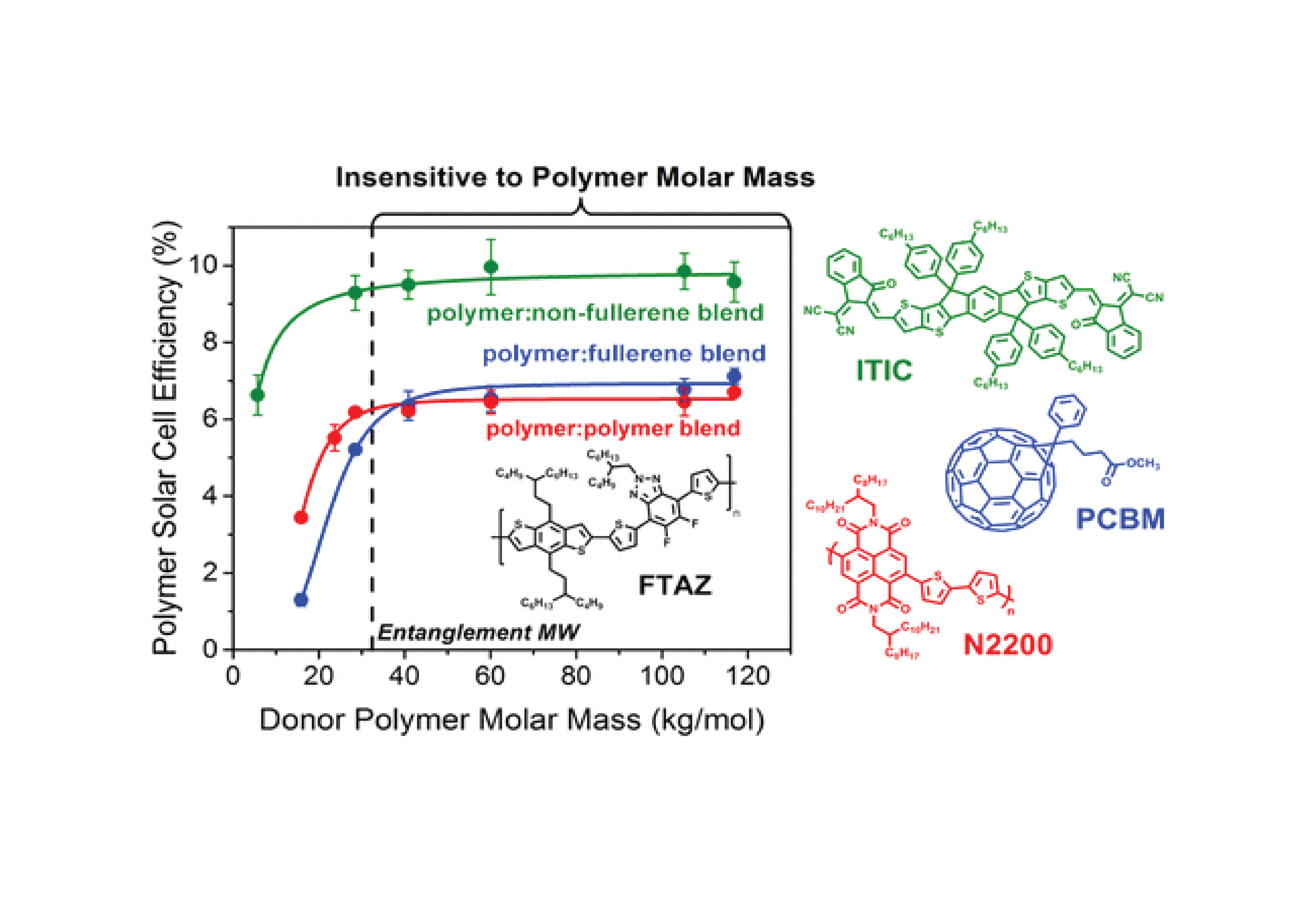Organic Solar Cells with Large Insensitivity to Donor Polymer Molar Mass across All Acceptor Classes
Abstract
Donor polymer number-average molar mass (Mn) has long been known to influence organic photovoltaic (OPV) performance via changes in both the polymer properties and the resulting bulk heterojunction morphology. The exact nature of these Mn effects varies from system to system, although there is generally some intermediate Mn that results in optimal performance. Interestingly, our earlier work with the difluorobenzotriazole (FTAZ)-based donor polymer, paired with either N2200 (polymer acceptor) or PC61BM (fullerene acceptor), demonstrated <10% variation in power conversion efficiency and a consistent morphology over a large span of Mn (30 kg/mol to over 100 kg/mol). Would such insensitivity to polymer Mn still hold true when prevailing small molecular acceptors were used with FTAZ? To answer this question, we explored the impact of FTAZ Mn on OPVs with ITIC, a high-performance small-molecule fused-ring electron acceptor (FREA). By probing the photovoltaic characteristics of the resulting OPVs, we show that a similar FTAZ Mn insensitivity is also found in the FTAZ:ITIC system. This study highlights a single-donor polymer which, when paired with an archetypal fullerene, polymer, and FREA, results in systems that are largely insensitive to donor Mn. Our results may have implications in polymer batch-to-batch reproducibility, in particular, relaxing the need for tight Mn control during synthesis.
Citation
Organic Solar Cells with Large Insensitivity to Donor Polymer Molar Mass across All Acceptor Classes
Stephanie Samson, Jeromy Rech, Lorena Perdigón-Toro, Zhengxing Peng, Safa Shoaee, Harald Ade, Dieter Neher, Martin Stolterfoht, and Wei You
ACS Applied Polymer Materials 2020 2 (11), 5300-5308
DOI: 10.1021/acsapm.0c01041


